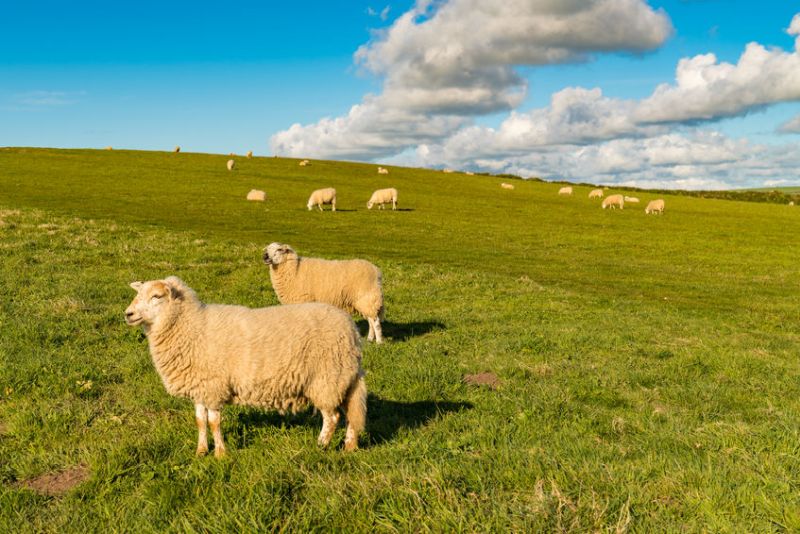
Sheep farmers are urging environmental activists and green campaigners to consider British wool as a viable alternative to man-made fibres.
It comes as climate change activists have descended on Westminster on Monday (7 October) in an attempt to 'shut down' the area with two weeks of protests.
The UK has seen protest movements on climate change before, but the group organising today's protests, Extinction Rebellion, has upped the ante to a new scale.
Meanwhile, Animal Rebellion, an off-shoot of the group, is set to blockade Smithfield Market - the largest wholesale meat market in the country.
The UK is also getting ready to simultaneously celebrate the Wool Week initiative today, and farmers are calling on environmental campaigners to back British wool.
The annual event aims to highlight wool’s natural performance qualities and ecological benefits.
The Farmers’ Union of Wales (FUW) is encouraging activists to embrace British wool, and, in turn, become more sustainable.
FUW Vice President Ian Rickman said: “Every year our sheep will produce a new fleece and they will do so as long as there is grass for them to graze on, making wool an excellent renewable fibre source.
“That is especially true if compared to synthetic fibres, which require oil and refineries and are a non-renewable resource for man-made fibre production.”
The pull on natural resources and reductions required in the use of fossil fuels, Mr Rickman said, means that consumers will have to look at their longer-term choices.
“We feed the nation with sustainable and well cared for lamb and take our responsibility to look after the environment seriously.
“We share concerns about plastic and micro-fiber pollution in our oceans and soil, as well as pollution from fossil fuels,” he said.
Fabrics such as polyester, nylon and acrylic are all forms of plastic and make up about 60 percent of the material that makes up clothes worldwide.
The tiny plastic particles which are shed from these clothes eventually end up in the world's oceans.
British sheep farmers are therefore urging consumers to make choices on an individual level in terms of what is consumed - be it food or clothes.
Mr Rickman added: “There are over 10 million sheep in Wales, which means we have access to a great resource right here on our doorstep.
“Wool at the end of its useful life can be returned to the soil. Where it decomposes, it releases nutrients into the ground and it only takes a short time to break down. It doesn’t pollute the oceans and has many other benefits.
“Therefore, if you want to do your bit for the environment, buy local and in-season food and consider wool as a viable alternative to man-made fibres.”
The sheep sector is increasingly keen to highlight their work of safeguarding the environment while improving efficiency in livestock production.
Last month, the National Sheep Association highlighted how British lamb produced from grass-based systems is one of the solutions in the climate change debate.
